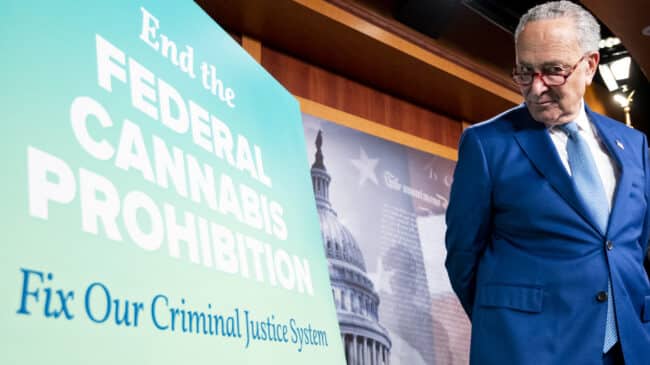In the 2019 Supreme Court case Tennessee Wine and Spirits Retailers Assn. v. Thomas, the high court concluded that states could not require a person wishing to operate a retail liquor store to have lived within the state for two years as a condition of licensure. The Supreme Court noted that such a requirement would violate the Constitution’s Interstate Commerce Clause by imposing trade barriers between the states. The decision that Tennessee’s residency requirement for retail liquor licensure violated the Dormant Commerce Clause could also have a significant impact on state marijuana markets.
Throughout the nation’s history, federal courts have deployed the legal doctrine of the Dormant Commerce Clause in similar cases. The Dormant Commerce Clause effectively bars states from enacting policies that intentionally discriminate against any goods or economic actors from other states. This doctrine is supported by economic theory which holds that free trade enlarges markets, allows more efficient production and specialization, and ensures consumers can access a wide array of products they value.
While the 2019 Supreme Court decision further enshrined the commitment to free trade among the various states, Congress is considering casting aside the foundational principles of the Commerce Clause to protect state-licensed marijuana companies from competition. Like Tennessee’s requirement for retail liquor licenses, many states with legal marijuana markets have placed onerous residency requirements on any person who owns or invests in a marijuana-related company—even when the investment is passive. Many legal marijuana advocates argue that these residency requirements are unconstitutional and some states have begun to roll them back.
However, as the debate over possible federal legalization of marijuana has taken shape on Capitol Hill this year, key players are seeking an express exemption from the Dormant Commerce Clause. Colorado Attorney General Phil Weiser, for example, has urged sponsors of marijuana legalization legislation in the U.S. Senate to allow states to protect local marijuana licensees from out-of-state competition. Law professors from Vanderbilt University also penned a lengthy article to the same senators asking them to shield legal marijuana from the reach of the Dormant Commerce Clause. Industry insiders recently hosted one of these law professors in an online forum decrying the breadth of the Dormant Commerce Clause.
The plaintiff in the Tennessee Wine and Spirits case was a trade association of entrenched in-state liquor retailers who sought to prevent the awarding of licenses to prospective competitors. The arguments in favor of protectionism are likely quietly applauded by marijuana industry insiders who may fear they can’t compete on price or quality in an open marketplace and would like to limit competition.
In states with legal marijuana markets, regulatory structures are already in place to ensure product quality and consumer safety. These regulations have been drafted with much care and deliberation and there is scant evidence of their failure. As such, there is no reason to delay the interstate trade of these goods beyond the time it takes for a federal agency such as the Alcohol and Tobacco Tax and Trade Bureau (TTB) to create a process allowing for transfers of inventory from one state commercial system to another. This rather simple task would closely mirror what TTB already does for transfers of wine and spirits.
The most expeditious method of legalizing marijuana at the federal level is to deem any state-approved marijuana product acceptable for trade in interstate commerce and allow TTB to facilitate those interstate transfers.
Despite what the emerging coalition of protectionists may claim, the pause on interstate commerce being considered by Congress is not a necessary component of cannabis legalization. In fact, any statutory directive halting interstate trade of a federally legal product may itself become subject to challenge based on violation of the Commerce Clause.
The framers of the U.S. Constitution drafted the document for the express purpose of defeating the various forms of state protectionism that arose under the Articles of Confederation. Those barriers to trade so greatly impinged on commercial efficiency as to motivate an entirely new form of government. The Commerce Clause is foundational to the American republic and should not be frivolously cast aside as Congress rightly considers legalizing marijuna.

